Adam Leache is a Professor of Biology at the University of Washington and Curator of Herpetology and Genetic Resources at the Burke Museum of Natural History and Culture. He is also a National Institutes of Health Genome Training Grant Faculty Member through the Genome Sciences Department at the University of Washington. He is a former member of the McNair Scholars Program, a U.S. Federal TRIO program run by the US Department of Education. He is the recipient of a University of Washington Distinguished Teaching Award, and the Ernst Mayr Award from the Society of Systematic Biologists. He received his Ph.D. from the University of California, Berkeley in the field of Integrative Biology where he conducted biodiversity research in the Museum of Vertebrate Zoology. He transitioned to computational work as a postdoctoral researcher at the University of California, Davis where he conducted simulation studies to compare the performance of different model-based approaches to estimate phylogenetic histories using Bayesian statistical techniques. These computer simulation studies provide important guidelines for study design and identify important avenues for innovative research and methods development. His current work focuses on phylogenetics, systematics, phylogeography, and species delimitation. Natural populations of reptiles and amphibians are the focal species of interest, and he conduct extensive fieldwork to study animals in the wild. His fieldwork to remote and understudied regions has resulted in the discovery and scientific descriptions of new species. Species discovery is a renaissance topic in biology, and his lab is at the forefront of developing and employing new genomic tools and technologies for studying populations and species. He uses a wide variety of genomic tools, which creates natural research intersections with computational biology and bioinformatics.
During his Fulbright visit to Greece, he will collaborate with experts in the fields of computer science and biology to investigate the dispersal routes animals used to diversify and spread across Africa, Asia, and Europe using the Aegean Islands as stepping-stones. His primary host institution is the Foundation for Research and Technology Hellas in the Institute of Computer Science where he will work with global leader in the development of computer science and programming solutions for the analysis of genetic data. Additional host institutions include the Hellenic Center for Marine Research and the Natural History Museum of Crete.
Research/Teaching
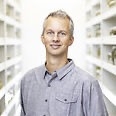
Adam Leache
University of Washington-Seattle Campus, WA
Foundation for Research and Technology Hellas, Heraklion, Crete
Evolutionary Biology/Biodiversity Computing
February – May 2025
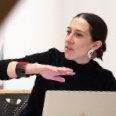
Allyson Vieira
George Washington University, Washington, DC
The Preparatory and Professional School of Fine Arts, Panormos, Tinos
Arts Pedagogy, Sculpture, Marble-carving, Heritage Craft
October 2024 – January 2025
Artist Allyson Vieira holds an MFA in Sculpture from Bard College, and a BFA from The Cooper Union. She is currently Assistant Professor of Foundations at the Corcoran School of Art and Design at The George Washington University in Washington, D.C. and one of the few faculty members responsible for sculpture pedagogy at the university. Vieira lives and works in New York City. In her work, time is often stretched, folded, and twisted: the past, present, and future layered like an archeological site. She asks, “How can sculpture, commonly thought of as a three-dimensional, spatial medium, present itself in relation to its fourth dimension of time? How can objects’ duration––the key condition of their existence and our perception of them––be revealed within an object-making practice?”
Vieira’s recent exhibition, “You Too” (“ΚΑΙ ΣΥ”), reimagines ancient Greek apotropaia––magical images, phrases, and actions intended to ward off evil––in architecturally-scaled plastic weavings, recontextualizing them alongside recent textual excerpts from the Human Interference Task Force cryptically typeset in ancient boustrophedon and spiral forms, to protect against contemporary and future dangers. These works are contemporary warnings, using apotropaia and language forms of the past to communicate from the present to the future, and from the future back to us. Vieira has exhibited extensively both internationally and in the U.S., including institutional projects at Kunsthalle Basel, Swiss Institute, Storm King Art Center, PinchukArtCentre, Non-Objectif Sud, FRMoCA, Frieze Projects, The Public Art Fund, The Highline, Art Gallery of Burlington, The Gund Gallery, and SculptureCenter, and she was a 2021-2022 Visiting Artist Fellow at Harvard University's Center for Hellenic Studies. Her book of interviews with Greek master marble carvers, On the Rock: The Acropolis Interviews, for which she was the recipient of grants from the Graham Foundation, the Henry Moore Foundation, and FLACC, is available from Soberscove Press, Chicago, and her catalog, Allyson Vieira: The Plural Present, is available from Karma Books.
As a Fulbright Scholar, Vieira will be studying the traditional technique and pedagogy of marble carving, as specifically taught at the Preparatory and Professional School of Fine Arts in Panormos, Tinos. During her time in Tinos, Vieira will research, study and interact with fellow students on advancing the mastery of marble carving.
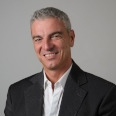
George Bollas
University of Connecticut, Storrs, CT
Centre for Research and Technology - Hellas, Thessaloniki
Chemical Engineering
October – December 2024
Dr. George Bollas is the Pratt & Whitney Endowed Chair Professor in Advanced Systems Engineering with the Chemical & Biomolecular Engineering Department at UConn. He is the Director of the Pratt & Whitney Institute for Advanced Systems Engineering at UConn. He is also the Associate Dean of Research for the UConn College of Engineering. Prior to joining UConn, he was a postdoctoral fellow at the Massachusetts Institute of Technology and before that he received his BS and PhD in Chemical Engineering from the Aristotle University of Thessaloniki in Greece. His interdisciplinary research merges the fields of energy technology, process systems engineering and model-based systems engineering.
His laboratory pursues a balanced approach to information theory for the design, optimization, control, operation, and maintenance of cyber-physical systems, with applications on energy, chemical industry, manufacturing, naval and the aerospace industry. Dr. Bollas is the recipient of the NSF CAREER and ACS PRF Doctoral New Investigator awards; the UConn Mentorship Excellence award; the UConn School of Engineering Dean’s Excellence award; AIChE Teacher of Year award; and the Chemical & Biomolecular Department Service award. He was a member of the 2016 Frontier of Engineering Education of the NAE and was elected as member of the Connecticut Academy of Science and Engineering in 2020. He has partnered with over 100 industry professionals and executives in generating and managing funding for UConn that exceeds $50M leading to joint R&D, technology, patents, and professional training programs. He manages a portfolio of over $7M in research projects, while his Institute manages active research funding that totals over $40M.
As a 2024-25 U.S. Fulbright Scholar to Greece, Dr. Bollas will collaborate with the Centre for Research and Technology (CERTH) in Thessaloniki. Together with his hosts at CERTH he will investigate methods to use ammonia as an economically feasible, environmentally friendly chemical compound, which can help decarbonize the transportation and power sectors.
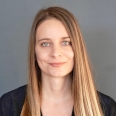
Jennifer (Jenny) Stratton
Partnership for Appalachian Girls Education, Marshall, NC
Archipelagos Institute of Marine Conservation, Samos
Documentary Arts Residency
February – May 2025
Jennifer Stratton is a transdisciplinary artist, journalist, and educator. Weaving together practices from the ecological sciences, creative arts, social practice, community archives, and trauma-informed care, her work often engages with restorative narratives and relationships between individuals, communities, and the environment. Jennifer is a graduate of Duke University, where she received a Foreign Language and Area Studies Fellowship in Arabic and was also a Lewis Hine Fellow at the Center for Documentary Studies. Additionally, she served as an inaugural artist-in-residence at the Duke University Marine Lab, a Scholar at the Center for Environmental Filmmaking, and a creative facilitator for the Rural Opportunity Institute's PhotoVoice program. In tandem with producing socially engaged art and photojournalism projects, Jennifer collaborates with schools, libraries, research institutions, non-profits, media, and grassroots organizations. Together, they develop collaborative mediamaking and initiatives that foster collective imagination, community building, and public dialogue with an eye towards mobilizing resources and positive social change. During her Fulbright award in Greece, Jennifer will collaborate and do fieldwork with the Archipelagos Institute of Marine Conservation. Jennifer will explore inclusive, participatory approaches to visually representing local marine conservation efforts, including the mapping of keystone species such as Posidonia seagrass and Coralligenous reefs.
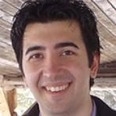
Michael Tsikerdekis
Western Washington University, Bellingham, WA
University of Macedonia, Thessaloniki
Computer Science/Cybersecurity
February – May 2025
Michael Tsikerdekis is an Associate Professor of Computer Science at Western Washington University in Bellingham, WA. He additionally serves as an IEEE Senior Member and chair of the Public Infrastructure Security Cyber Education System (PISCES) Technical Advisory Committee. Tsikerdekis received a PhD in Informatics from Masaryk University in Brno, Czechia. His research focuses on online deception and cybersecurity. Michael has published numerous peer-reviewed papers in top-tier journals, many with undergraduate and graduate student co-authors.
As a Fulbright Scholar, his work aims to initiate the teaching of network security monitoring to students at the University of Macedonia using realistic or real-time data and to study the efficacy of this approach compared to more streamlined lab approaches for teaching the same subject matter. He will also provide workshops and seminar talks around the field of cybersecurity.
